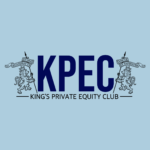
By Dong Liu, Senior Research Analyst at King’s Private Equity Club
Are the pursuits of impact and returns compatible with one another? A look into the private equity industry suggests that they are.
Impact investing, as its name suggests, focusses on creating positive social outcomes while generating financial returns. Impact investors are committed to measuring investments’ social and environmental performance. From renewable energy, agriculture, healthcare to education, it covers a range of industries.
At first glance, one may suggest that investing in social enterprises in emerging economies is less favourable, given the returns generated may be comparatively low. Social enterprises in emerging economies often demonstrate a slow growth path, while the costs associated with innovation are high.
However, in the last few years, environmental, social, and governance (ESG) practices are taken into account by more industries and businesses. Investment funds are excluded from companies engaging in unacceptable practices, including child labour, excessive pollution and deforestation. With this shift in mindset, more investors are turning their eyes to socially conscious investing.
What is more about impact investing is that it aims to strike a balance between pure philanthropy and traditional investing. Unlike venture investing that has little expectation on return or socially responsible investing (SRI) that merely intends to avoid harmful ESG practices, impact investing pursues both positive change and acceptable returns. According to GIIN (Global Impact Investment Network)’s 2020 Annual Impact Investor Survey, the estimated market size of impact investing is about 715 billion US dollars. The survey identifies that most investors (67%) in the market are seeking competitive returns, including investors in the PE industry.

There are good reasons for PE firms to embrace impact investing. First of all, there are growing concerns about global issues, from social inequality to climate change. More people, in particular those of younger generations, are turning to companies with good ESG practices. Secondly, the correlation between high financial returns and good ESG practices is evident. According to GIIN’s survey, enterprise performances largely meet or even exceed expectations with regards to both impact (99%) and financial returns (68%). A study by Bain & Company also shows that among the PE-led exits sampled from 2014 to 2018 in Asia-Pacific, deals that are socially and environmentally responsible have achieved better results than others.
At the moment, impact investing still faces certain challenges. As GIIN’s survey shows, 56% of the respondents indicate ‘appropriate capital across the risk/return spectrum’ as a significant challenge. There is a lack of different types of capital and investment at scale, which are crucial for the impact movement to be truly successful. The Financial Times reported that more than 1.8 trillion US dollars in the capital remain on the sidelines in private equity alone in 2018. This challenge can be overcome by developing better models to channel the capital.
In addition to the lack of capital, 48% of the respondents find ‘sophistication of impact measurement management practice’ as another significant challenge. However, 39% of the respondents also say that there has been significant progress. In October 2020, the United Nations Development Programme (UNDP) issued a new set of Standards for Private Equity Funds to work towards the Sustainable Development Goals (SDGs). The Standards contain four elements: strategy, management approach, transparency and governance. They provide investors with guidance to manage funds and tools in self-assessing their investments to align with the SDGs. By establishing objectives, setting metrics, monitoring and reporting performance, investors are able to ensure transparency and accountability.
Impact investing opens up new gateways to viable opportunities and economic inclusion. It can be seen that both impact language and impact measurement play an important role in paving the way to success. An optimistic outlook of “doing well by doing good” is not out of reach. Impact and returns, after all, are not mutually exclusive. In fact, for those who seek long-term and sustainable returns, it would be imprudent to disregard the social impact of their investments.
Exclusive Offer: Get £100 off your Summer Internship Experience at Amplify Trading by clicking here or using our unique discount code at the checkout: MSAmplifySummer2021. Participants graduate from the course with a Diploma from the London Institute of Banking & Finance. For more information about the course, click here.
Further Reading:
https://www.investopedia.com/terms/i/impact-
investing.asphttps://thegiin.org/impact-investing/need-to-know/#what-is-impact-investing
https://www.ft.com/content/2236b95e-9998-11e8-88de-49c908b1f264
https://www.ft.com/content/40d246e3-5cd3-40ae-bb23-fb640d3637a4
https://www.whitecase.com/publications/insight/doing-well-doing-good
https://www.bain.com/insights/private-equity-investors-embrace-impact-investing/https://home.kpmg/xx/en/home/insights/2020/02/private-equity-embraces-impact.html
https://www.undp.org/content/undp/en/home/news-centre/news/2020/UNDP_issues_new_guidance_for_private_equity_funds_to_look_beyond_bottom_line.html
https://sdgimpact.undp.org/private-equity.html

King's Private Equity Club
King's Private Equity Club is a student society at King's College London, providing a high quality of networking, speakers, workshops and social events to the King's Community. Our goal is to improve our members understanding and employability.